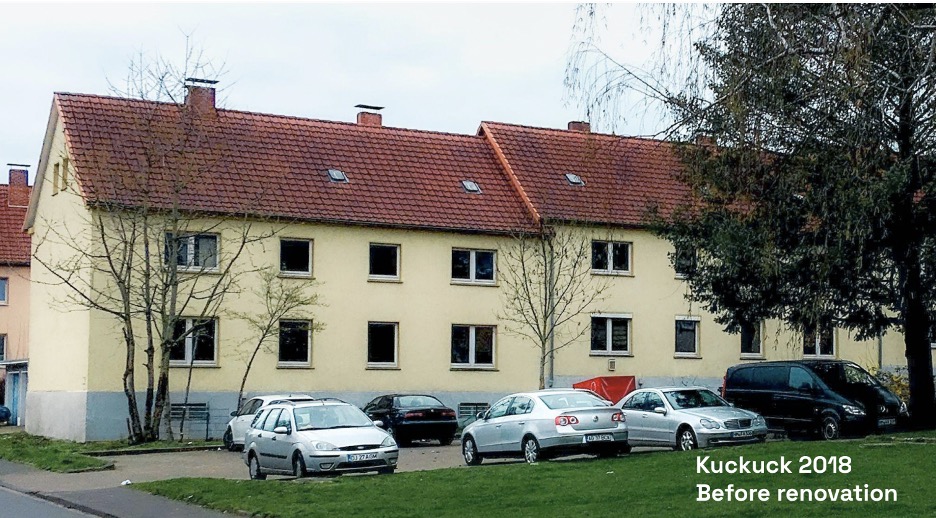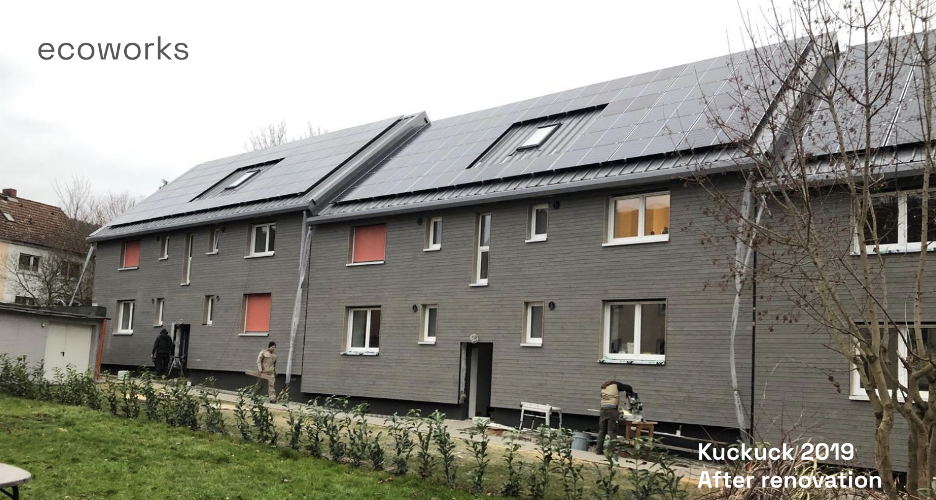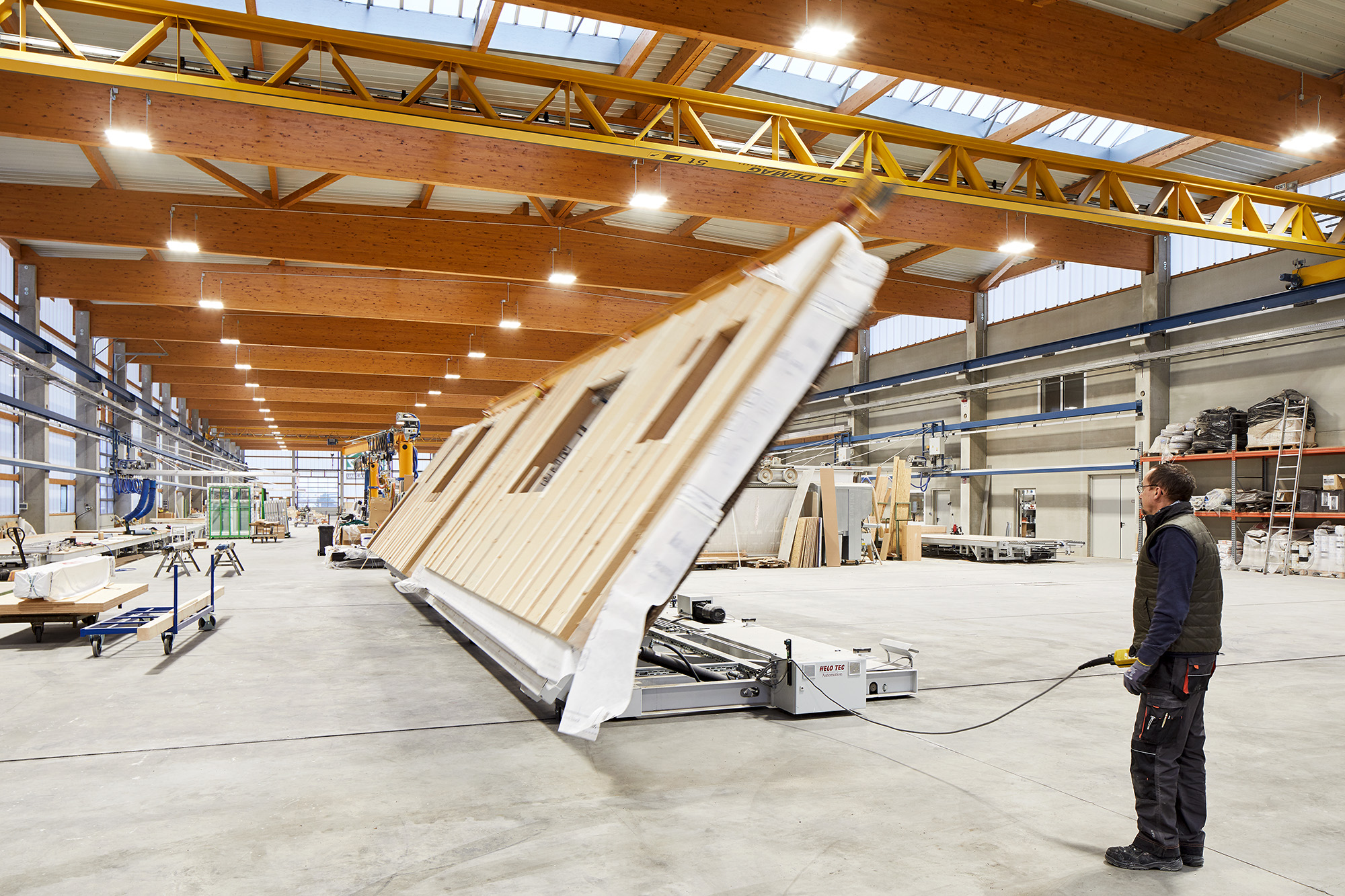Blackhorn Ventures Backs Ecoworks to Scale Modular Carbon-Neutral Buildings
Blackhorn Ventures is excited to share that we have invested in Berlin-based energy retrofit startup Ecoworks alongside our friends at JLL Spark Global Venture, Zacua Ventures, PropTech1, Warema Group, and Motu Ventures. Ecoworks’ approach benefits from software-defined digital planning and hardware-driven, contract-manufactured kits of prefabricated building envelopes, roofing and electrical building mechanical systems, and is fully-aligned with Blackhorn’s investment thesis of capital-efficient, prefabricated modular construction.
As the first German-based company we’re funding out of Industrial Impact Fund II, we see this investment as a signal of things to come and a reflection of the vibrancy of the European climatetech startup ecosystem and the new energy reality on the continent. Europe is several years ahead of the US in their decarbonization journey, and we’re excited to leverage our networks and insights for speed and scale in accelerating transition solutions from Europe for deployment into the US.
The Solution
Ecoworks searches through public building databases and satellite imagery to find and rate the best candidate buildings to renovate using a proprietary algorithm based on >100 criteria. Once a portfolio of buildings with uniform typology has been identified, the team designs and installs a custom kit-of-parts over and within the buildings.
This approach accomplishes three critical goals simultaneously: it helps standardize and serialize retrofits so that multiple buildings with the same typology can meet their carbon-neutrality goals more quickly; it allows landlords who own old-building stock to meet new energy efficiency requirements (and earn an additional €0.5-€2.0/sq-meter after renovations); and it provides multi-family residential tenants a path to reducing their energy bills without having to vacate their units for weeks or months on end while their building is being retrofitted.


The Market Opportunity
The risk of ‘stranded assets’ is driving urgent action in real estate, particularly in the EU: 16% of German housing stock, 3.4 million units, is classified as efficiency grade G. Due to recent EU climate regulation, any of these buildings that do not improve to a higher efficiency class by 2030 will be removed from the housing market. Government subsidies of 40-60% of project costs are available and reduce sales friction.
There are approximately 119 million residential buildings across the EU. 38% of these, 45 million units, were built pre-1970, before there was any regulation on thermal insulation. Only 12% of residential buildings have been renovated to meet climate change targets. 15% of the residential building stock across the EU, 18 million units, falls into efficiency standard G and must be immediately renovated to remain rentable. Another 20% fall into categories D, E, and F which will have to be renovated in the near-future as well. While the team is starting with public housing and small commercial buildings today, there is a €57B market for middle market (>5,000 unit) housing companies. According to the Royal Institute of Chartered Surveyors, “…the data indicate a significant opportunity exists for energy efficiency retrofits to both residential and non-residential buildings throughout the EU.”
The Impact Opportunity
Old, energy-wasting residential and commercial buildings have been estimated to contribute as much as 40% of all CO2 emissions. So, accelerating the speed and scale of energy efficiency retrofits is a massive global opportunity, and a national priority in Europe, where building renovation is a €770B market and 95% of building renovations are currently being done manually on-site.
In the wake of the ongoing Russian invasion of Ukraine, reducing the use of oil and gas for heating buildings has become an even higher priority for Germany and several other European governments, as they attempt to wean themselves from their current overdependence on Russian oil and gas.
The Traction
Ecoworks’ first pilot project was a resounding success. They completed their first building renovation projects in two-thirds the cycle time of industry incumbents, and did not require tenants to vacate. They completed on-site work in under 3 weeks, compared to incumbents who take 4-6 months and must vacate tenants during construction.
With several portfolios of projects in-process and a strong pipeline of multifamily developments across Germany, we’re excited to see how quickly the team is acquiring customers with no outbound marketing spend. Ecoworks is able to reduce project cycles by standardizing business cases with data, using data and AI-assisted planning, developing & simplifying pre-fabricated components, and simplifying installation. Given the urgent need for carbon-neutral renovation in Germany, and across the EU, increasing capacity and delivery is constrained only by supply chain and workforce.

The Team
CEO Emanuel Heisenberg is a serial entrepreneur who served as a Senior Advisor to Energiesprong Deutschland, the German arm of an EU-wide regulatory movement for serial energy renovations and related funding schemes. Emanuel benefits from unique insights and relationships that are difficult to replicate. COO Gregor Loukidis has spent a decade in the photovoltaics and residential solar industry and demonstrated expertise in scaling complex operations. CPO Dr. Nadir Abdessemed has over twenty years of energy and planning experience. He received his PhD from Imperial College London and is a lecturer at Harvard University’s Graduate School of Design.
Emanuel, Gregor, and Nadir have assembled an all-star team of experts in product design and real estate sales. The team has 7 patents pending, 12 more in development, and a pipeline of €100M+. We believe that their combined industry expertise makes them the perfect fit to tackle the pressing problems of automation and prefabrication, and we look forward to working with them to secure the entire value chain to secure capacity and delivery, and unlock the potential of carbon-neutral housing at scale.